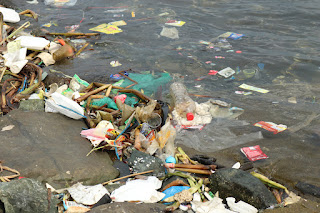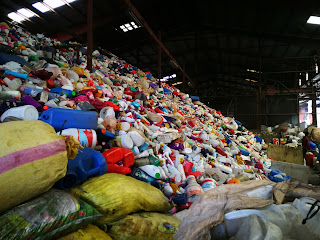 The World Wide Fund for Nature (WWF) Philippines is tapping businesses to tackle plastic pollution and stop the flow of plastic waste into nature.
The World Wide Fund for Nature (WWF) Philippines is tapping businesses to tackle plastic pollution and stop the flow of plastic waste into nature.
As part of the first anniversary of WWF-Philippines’ #AyokoNgPlastik movement and the recent launch of its ‘No Plastics In Nature’ initiative, the conservation organization now introduces Plastic ACTion (PACT) for businesses.
At least 20 businesses came on board the movement on its first year and have since worked to significantly reduce their usage of single-use plastics. In the hopes of maximizing the efforts of these companies, WWF aims to encourage them to join PACT, a voluntary business initiative to eliminate plastic pollution in nature.
Businesses that have taken part in the sustainable journey movement were recognized as they transitioned into PACT. Each company reported their measurable impact in terms of the amount of plastic units that they were able to prevent from becoming trash.
 “We all have a role to play in finding a solution to this plastics issue – and this includes businesses. We’re very grateful that these companies chose to take on the challenge of putting an end to plastic pollution and supporting our goal, which is to prevent plastic waste from leaking into nature,” shared WWF-Philippines President and CEO Joel Palma.
“We all have a role to play in finding a solution to this plastics issue – and this includes businesses. We’re very grateful that these companies chose to take on the challenge of putting an end to plastic pollution and supporting our goal, which is to prevent plastic waste from leaking into nature,” shared WWF-Philippines President and CEO Joel Palma.
A total of nine businesses were awarded for taking first monumental steps towards plastic reduction. These businesses include Bellevue Hotel and Resorts, LIND Boracay, CIBO, The Moment Group, Toby’s Estate, Shakey’s Philippines, foodpanda, Corkcicle, and Fairways and Bluewater.
Bellevue Hotel and Resorts served their complimentary water in glass bottles and stopped serving plastic straws, resulting in the annual elimination of 668,120 plastic bottles and 246,084 plastic straws. LIND Boracay also made the switch to water served in glass bottles, thus preventing 65,480 plastic bottles from becoming trash.
CIBO opted to go with reusable straws, which removed 310,361 plastic straws for the first year. The Moment Group also refused to serve single-use plastics leading to the elimination of 114,691 plastic straws and 53,700 plastic cutleries in one year. Removal of straws was also the focus of Toby’s Estate, eliminating 144,000 plastic straws in a year’s time.
 One of the top consumer companies, Shakey’s Philippines has also pledged to reduce and eventually eliminate plastic straws and containers, which could lead to the yearly reduction of 1,791,600 plastic straws and 1,837,700 plastic containers. Online food delivery marketplace foodpanda gave their customers the option to opt out of plastic cutlery, removing in one year 34,633 pairs of cutlery.
One of the top consumer companies, Shakey’s Philippines has also pledged to reduce and eventually eliminate plastic straws and containers, which could lead to the yearly reduction of 1,791,600 plastic straws and 1,837,700 plastic containers. Online food delivery marketplace foodpanda gave their customers the option to opt out of plastic cutlery, removing in one year 34,633 pairs of cutlery.
Tumbler brand Corkcicle also promoted the use of reusable drinking bottles, thus eliminating 1,267,450 plastic bottles per annum. Lastly, Fairways and Bluewater also committed to reduce 1.2 million units of plastic annually by ditching plastic bottles and toiletry containers.

























.png)
.jpg)
